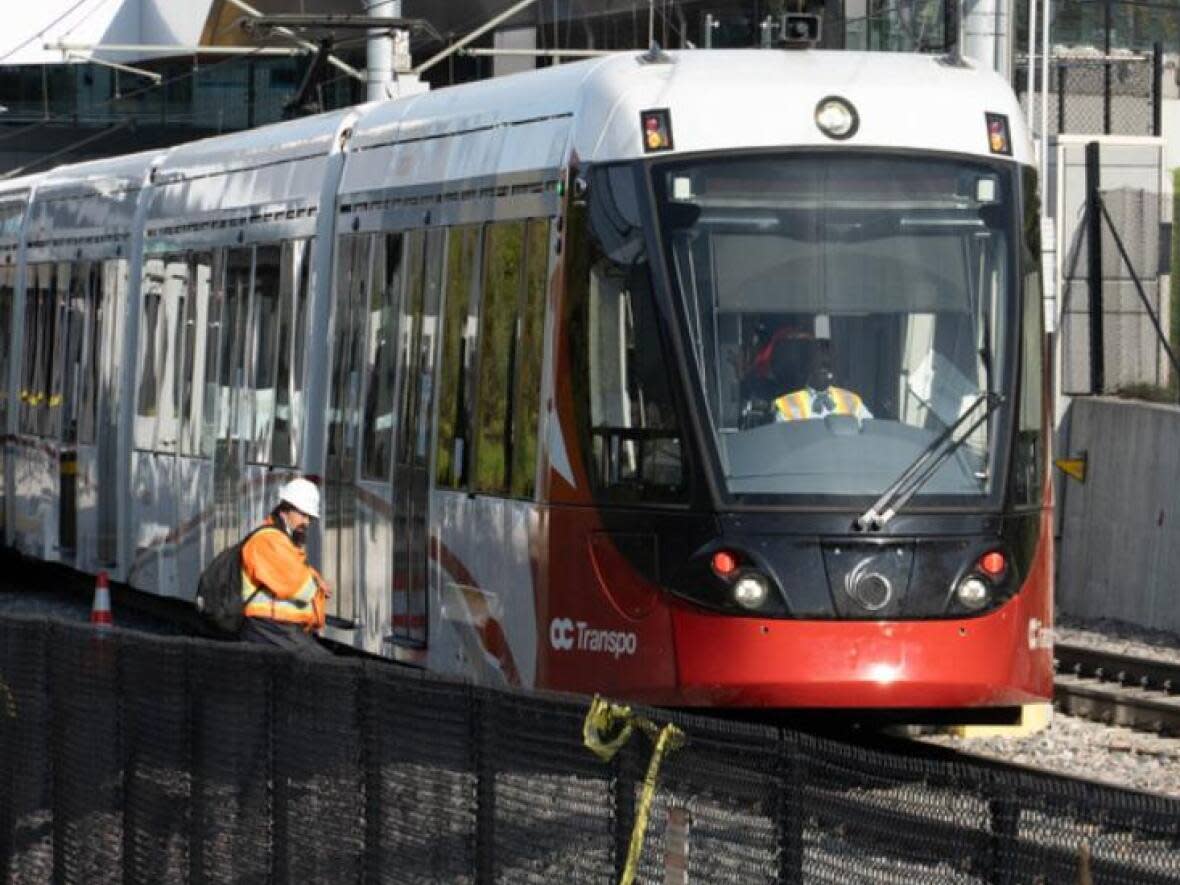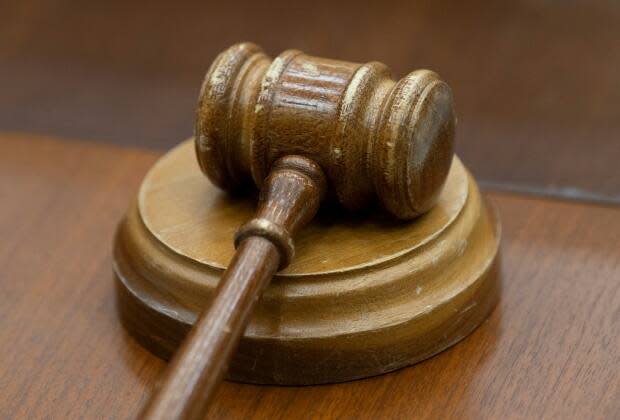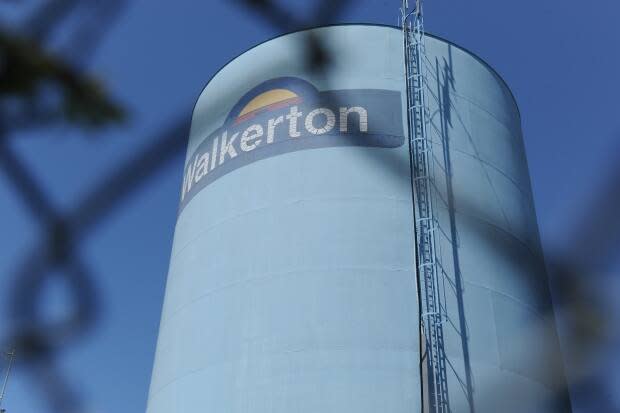Examining the pros and cons of a multi-million-dollar LRT judicial inquiry

Last week's news around Ottawa's light rail system ended on a positive note with a return to partial service on Friday, but as work continues to bring full service back, politicians continue to squabble over the best method to investigate the problem-plagued Confederation Line.
City councillors voted against a judicial inquiry on LRT last week, but mere hours later a spokesperson for Ontario Transportation Minister Caroline Mulroney said "all options are on the table" from the provincial government's perspective — including the possibility the province calls a public inquiry, which it would have to pay for.
Opponents of an inquiry, including Ottawa Mayor Jim Watson, have cited cost as a major barrier, which led the city to take a more affordable and shorter route with an auditor general's report. The report will eventually be public, but the process is private.
Concerns around the financial and time burden of a judicial inquiry are warranted, according to one expert.
How does it work?
Judicial or public inquiries are established to independently investigate matters of public interest, and to make recommendations based on that investigation.
One of the first steps is to name a commissioner, who functions as a lead investigator. When a municipality calls for a judicial inquiry, the commissioner is always a Superior Court justice — even though the recommendations that come out of an inquiry are not legally binding.
Judges are often chosen because they're seen as independent and credible.

Ed Ratushny, an emeritus professor of law at the University of Ottawa and author of The Conduct of Public Inquiries: Law, Policy, and Practice, says naming a good commissioner is one of the most important parts of a successful inquiry — because a commissioner has to balance speed and depth.
"It's very important that the commissioner be the kind of person who really gets down to business, wants to get it done as quickly and efficiently as possible, but also wants to be thorough and have the good judgment as to how far to go," he said.
The terms of reference are the second ingredient to a good public inquiry, Ratushny says, which lay out what's going to happen in the inquiry.
After that, the inquiry can call on witnesses to testify, unveil documents, interview experts and produce a report — all in public view and at an arm's length from politicians (who can't influence the outcome).
Cost is a main con
History shows a public inquiry can cost anywhere from $1 million upwards to more than $50 million.
Some estimates for the cost of a judicial inquiry into Ottawa's LRT system sit in the area of $20 million.
What is certain is that once an inquiry is underway, the cost, length and even its competence would be out of the government's control.
The Cornwall Inquiry, which was established in 2005 to investigate sexual abuse in the eastern Ontario town, ended up costing $53 million over four years.
The price tag was so high, then-Ontario Premier Dalton McGuinty questioned it.
The ongoing Red Hill Valley Parkway Inquiry in Hamilton was estimated to cost between $1 million and $11 million — already a wide range. But a report this year said the cost may be as high as $12 million, forcing the city to dip into reserve funds.
An inquiry into the collapse of a mall roof in Elliott Lake, Ont., cost $20 million, which was considerably higher than the provincial government had planned for.
Perhaps the most well-known public inquiry in Ontario's history — which examined an outbreak of E.coli in the town of Walkerton's water supply that killed seven people — cost just under $10 million.
Length and focus are often concerns — the law says a judge is to deliver a report "as soon as practicable."
"There's a concern around public inquiries … that they can be led astray," Ratushny said.
Ratushny points to the Cornwall Inquiry as an example of an "inefficient" investigation, which he said ultimately didn't function well.
The cheaper alternative in the case of Red Hill Valley Parkway in Hamilton, would have been an auditor general review priced at $300,000, a fraction of the cost of the inquiry.

Public access is a pro
The commissioner of a public inquiry has sweeping powers to expose wrongdoing to the public in a way an auditor general does not.
They can do this by compelling witnesses to testify, requesting documents and data, or even mandating certain information or data be collected if it doesn't exist.
The public could also lack confidence in an internal city audit, Ratushny said, as it could appear wrongdoers are investigating themselves behind closed doors, or at least having more influence over the investigation.
"You have to ask, is the public so concerned with the investigation being done independently and not by the government or the people who were involved, directly, in what happened being the investigators," he said.
It's a mistake to assume the public will favour a shorter, less costly investigation, Ratushny adds, citing the joint provincial-federal public inquiry into the mass shooting that killed 22 in Nova Scotia last year.
That was called in response to public pressure and opposition to a less ambitious proposed examination of the tragedy.
Ratushny points to the Walkerton Inquiry as an example of what can go right — the community was engaged effectively throughout, the investigation was transparent and efficient, and the process inspired public confidence the government was serious about preventing another fatal tragedy.
The inquiry made 93 recommendations to ensure safe drinking water in Ontario — all were eventually adopted by the government.

Cost of not holding inquiry
There can also be a cost to not having a public inquiry, which was highlighted in the Walkerton case. In addition to the tragic human cost, a government estimate said another outbreak could cost $90.8 million.
And unlike an auditor general's report, justice presents another benefit for a public inquiry.
Inquiries cannot compel law enforcement to press charges based on what's discovered, but they can still result in legal action for anyone who's found to have committed a crime.
In the end, inquiries are expensive, uncertain and can get messy, which is why Ratushny points to the cover of his book on the matter, featuring the bow of a boat approaching open water.
"Launching a commission of inquiry is a risky business, a bit like sending a ship out to sea," he says, reading a section of his book.
"You don't know where it will go, how long it will take, how much it will cost or what a costly experience it might be, especially if the captain is not in a hurry to come home."


